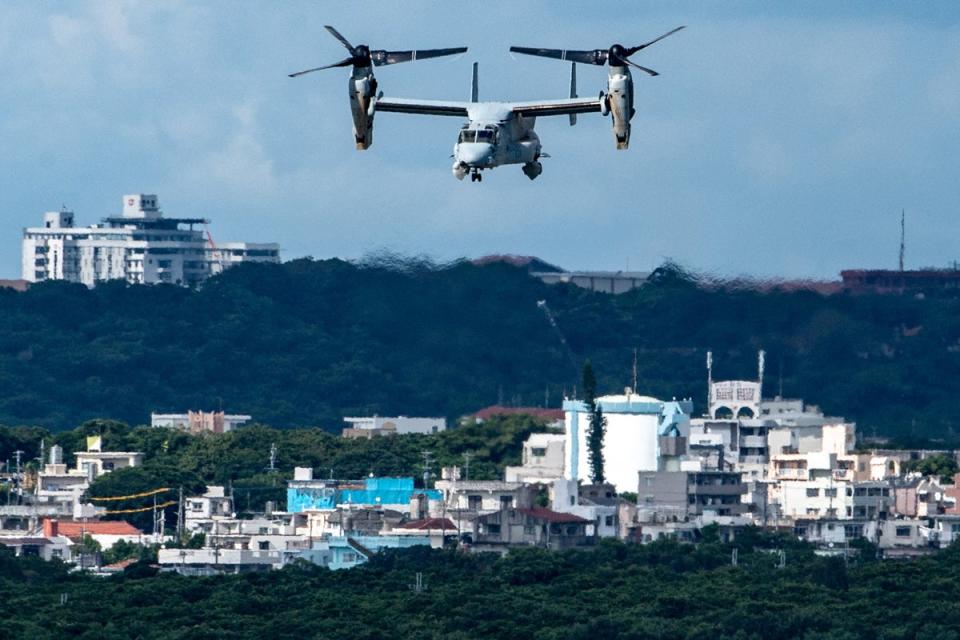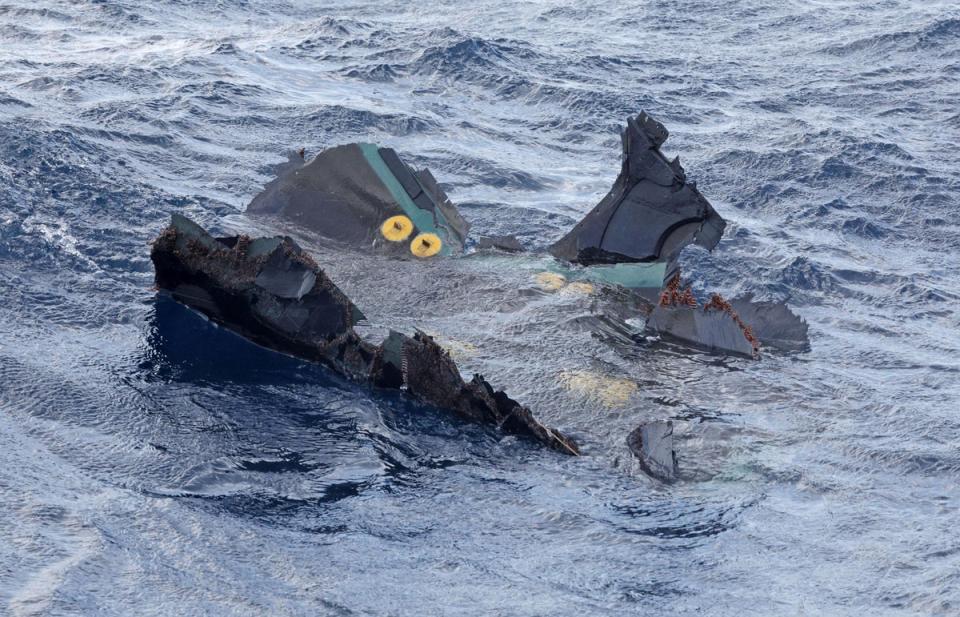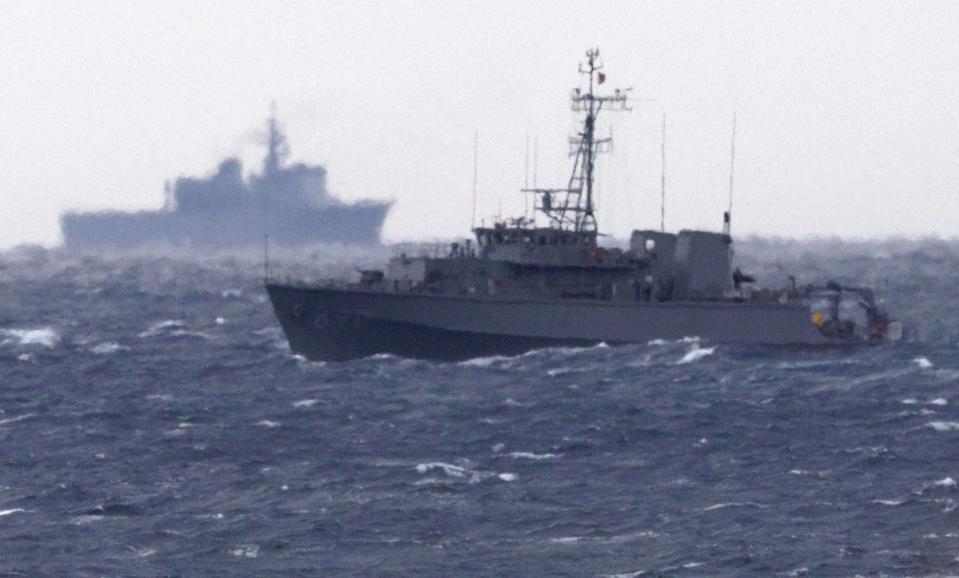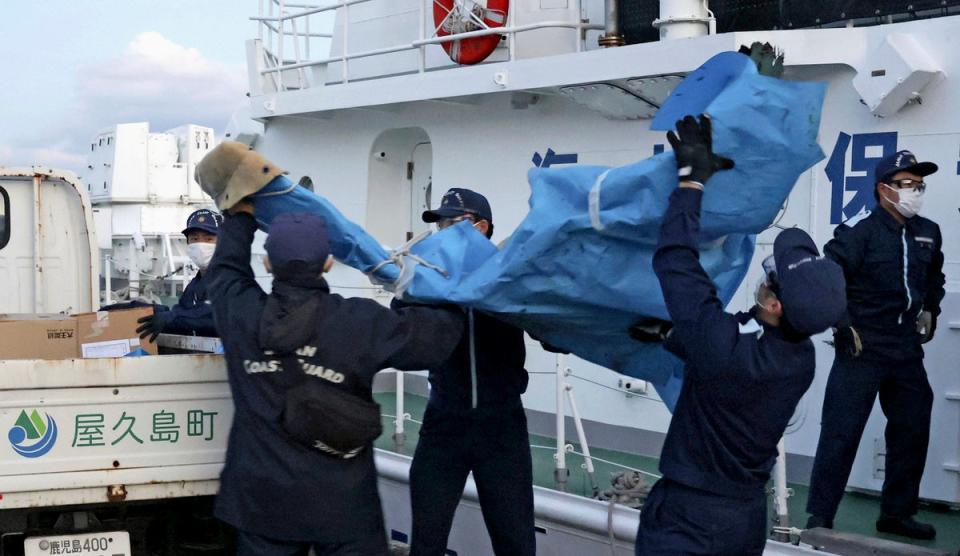Why do US Osprey helicopters keep crashing?
A deadly helicopter crash off the coast of Japan has sparked safety concerns surrounding the US military’s V-22 Ospreyaircraft.
Multiple people are believed to be dead after an American Osprey aircraft crashed into the sea in southwest Japan last week, according to the Air Force Special Operations Command.
The recent crash is the latest in a series of incidents involving Osprey aircraft around the world.
While the exact cause of the crash is unknown, the Japanese government has halted its operation of Osprey aircraft, and requested that the US ground its Ospreys.
However, the US has disregarded the request and is continuing to fly the craft despite concerns it may harm relations with Tokyo at a time when China is carrying out an aggressive military expansion in the region.
Japan and the US are the only nations to operate Ospreys. Their deployment has been controversial, with critics saying they are prone to accidents.
Here is everything you need to know about the aircraft:
What happened to the Osprey in Japan?
A US Osprey crashed in Japan last week after leaving the Marine Corps Air Station Iwakuni in Yamaguchi Prefecture for a training flight headed to the largest US base in the area – Kadena Air Base on Okinawa.
The helicopter is believed to have requested an emergency landing on the small island of Yakishima before crashing into the sea close to the island.

Witnesses have said the aircraft flipped and caught fire before hitting the water.
The Japanese Coast Guard, with the help of local fishermen, have been searching around the clock following the crash.
On Monday, the US Air Force confirmed it had found wreckage from the aircraft which contained the bodies of five of the eight crew members who were on board.
The Air Force said that two of the five crew members found on Monday had been recovered, adding that there was “an ongoing combined effort to recover the remaining crew members from the wreckage”.
The five crew members have not been identified.

Before this discovery, the remains of only one crew member had been found. Last week, the Air Force identified that crew member as Staff Sergeant Jacob Galliher, 24.
If all the crew members died in the recent crash, it would be the deadliest incident involving an Osprey ever.
How many Ospreys have crashed recently?
Last week’s crash is not the only fatal incident involving a US Osprey.
Four fatal Osprey crashes, including last week’s accident, have claimed the lives of at least 13 American troops in the past two years.
Three US Marines were killed and eight others were taken to hospital following an Osprey crash on an Australian island in August, CBS reported.
Meanwhile, in the summer of last year, five Marines died when an Osprey crashed in the desert in California.
Another crash – which was found to be the result of pilot error – killed four Marines in Norway in March the same year.

Hundreds of Ospreys are operated by the US Marine Corps, US Navy and by the US Air Force’s Special Operations Command, as well as by the Japanese military.
The Japanese Defence Ministry said that the US has six Ospreys at Yokota and another 24 at the Futenma base on Okinawa, according to CBS News.
The hybrid aircraft was initially used in Japan more than 10 years ago and can take off and land vertically like a helicopter before changing the angle of the rotors to fly at high speeds like a plane.
Ospreys have been used extensively during US military operations, including combat missions in Iraq, Afghanistan and Libya.
Why do Ospreys keep crashing?
Despite a string of accidents, the US military has so far insisted the aircraft is safe.
A Marine Corps investigation found that the California crash was the result of clutch problems – an issue that had also been reported by the Air Force on several occasions and which prompted the service to temporarily ground its fleet.
Meanwhile, Japan’s Chief Cabinet Secretary Hirokazu Matsuno last week said he was “concerned that flights are being carried out without sufficient explanation about safety confirmation, despite repeated requests from Japan”.
The cause of the Japan crash is still unknown.

The Pentagon said all V-22 Ospreys in Japan undergo safety and maintenance checks, and an investigation is ongoing into the crash.
“The United States is taking all appropriate safety measures, as we do for every flight and every operation,” a Pentagon spokesperson said.
“Should that investigation yield results that require the department to change anything about the Osprey or to take additional steps, we will certainly do that,” they added.
Statistics show that the aircraft is not more dangerous to operate than others in US military service. In 2022, a Marine aviation spokesman said the service’s Ospreys had a lower mishap rate per 100,000 flight hours than three of its jet fighters – the Harrier, the F/A18 Super Hornet and the F-35 – as well as its primary helicopter, the CH-53E Super Stallion.


